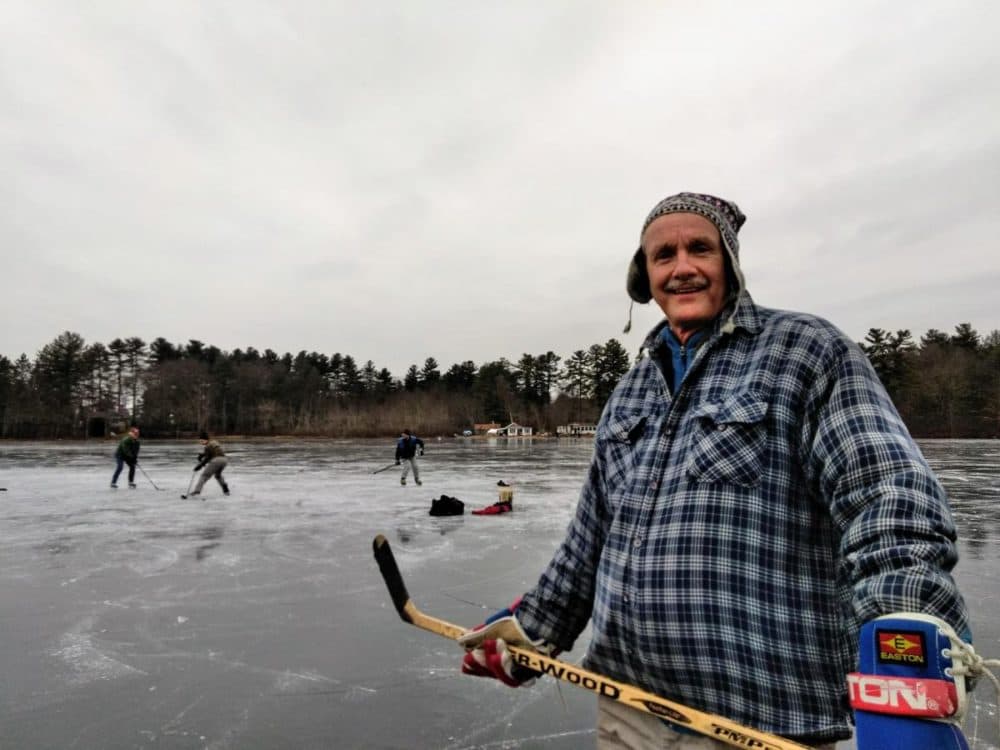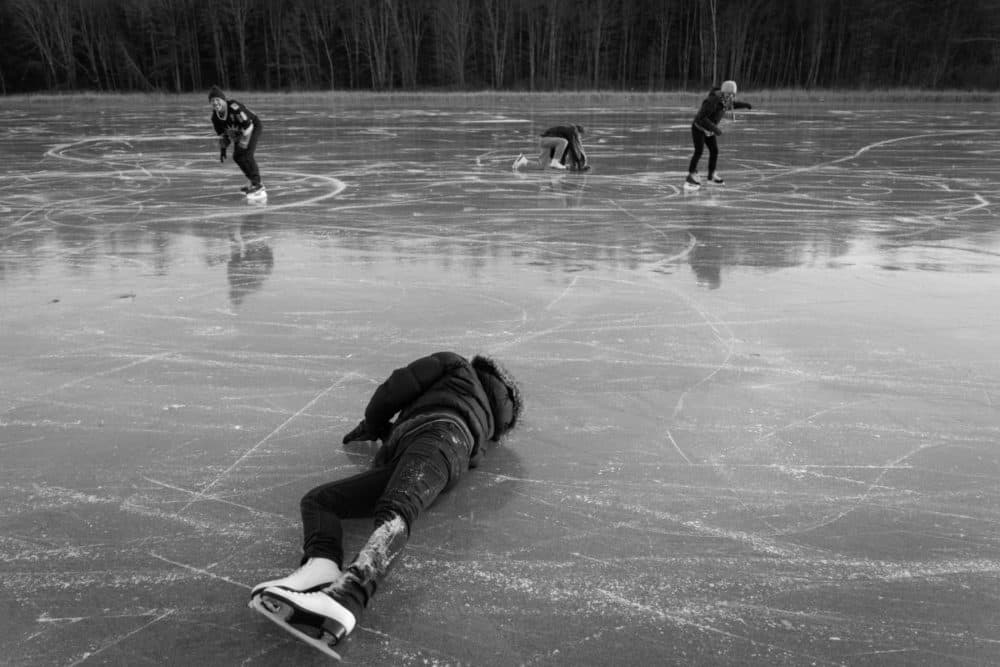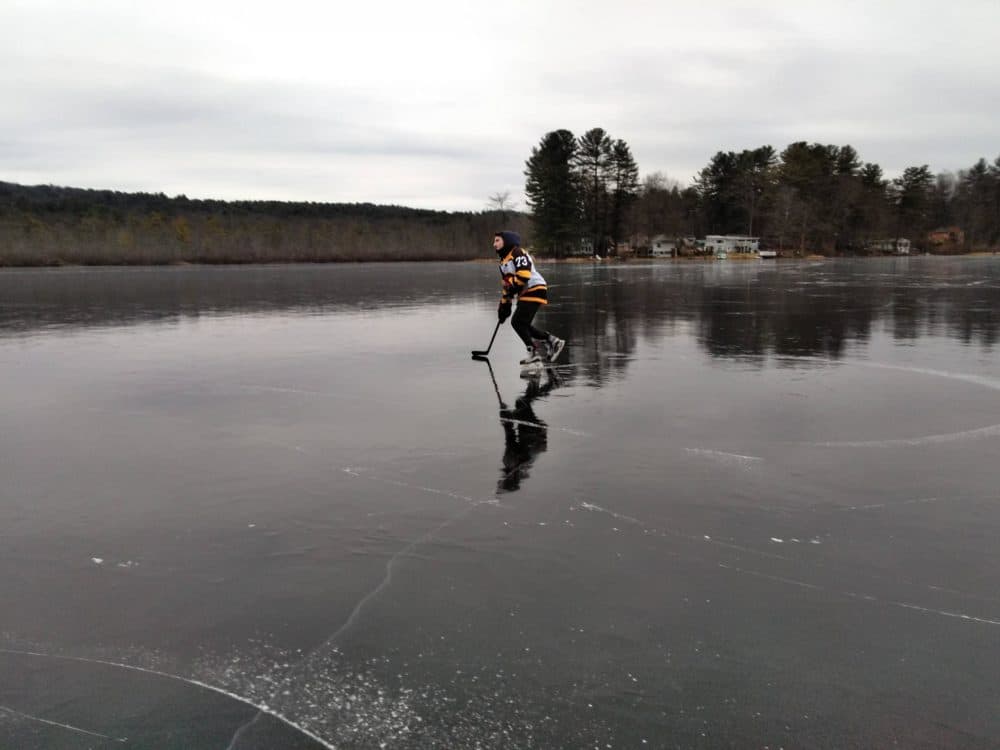Advertisement
The Perfect Black Ice That Came And Went

A few weeks of dry, cold January weather in western Massachusetts created ponds that were frozen sheer and smooth — like panes of glass — for the first time in years.
If you've lived in New England long enough, you know that ponds and open water freeze over differently year to year, depending on the weather.
On Lake Warner in North Hadley, Mass., the skating was remarkable. The black ice was so clear that every crack was visible — and audible.
The sound can be scary, especially if you're out in the middle of a lake alone … with a microphone.
But some people can't help themselves.

On a recent Saturday, Massachusetts state geologist Steve Mabee — skates on, hockey stick in hand — is one of the biggest kids out on Metacomet Lake in Belchertown, Mass.
“I was sitting here just the other night, and we heard one of those noises,” he said. “It’s the same noise that you hear from the stormtroopers in ‘Star Wars.’ ”
Mabee made sure the entire UMass geosciences department knew how good the ice was — and some of them also came out to skate.
Water is sort of contrarian. It’s at its highest density when it’s still liquid, at 4 degrees Celsius, Mabee said. That's just under 40 degrees Fahrenheit.
Most materials are at their maximum density when solid, and they expand when they're heated, Mabee said — like railroad tracks, which are made of steel. But not water.
“Water expands when it freezes,” he said.
When water hits 0 degrees Celsius, or 32 degrees Fahrenheit, it crystalizes. The expansion of the ice causes the groans you hear, and that reverberating soundtrack.
And here's a reassuring thing to hear when you're standing far from shore, perhaps a little nervous: A water molecule, H2O, is polar: it has a slight positive charge on one end, and a slight negative charge on the other.
Advertisement
“So that means it can attach itself to other water molecules,” Mabee said. “It's one of the few things that actually can be on the earth in all three phases: solid, liquid and vapor. And that's kind of a cool property.”
No pun intended — but cool indeed.

It’s a window into the bottom of the pond, at least at its edges, Mabee said, and he's spent almost his entire life in the Northeast living next to water. When he was a kid, he said, he didn't get off the ice until his mother called him home.
Ponds thawed a bit in the last few weeks, and refroze. That perfectly smooth ice is gone — for this season. The cracking will continue.
This story originally aired on New England Public Radio.
This segment aired on January 30, 2019.
